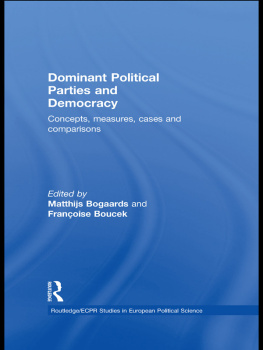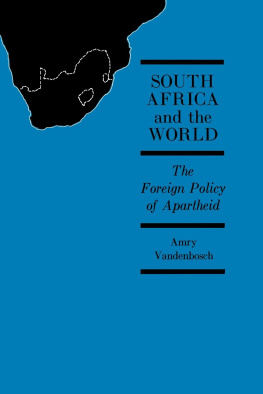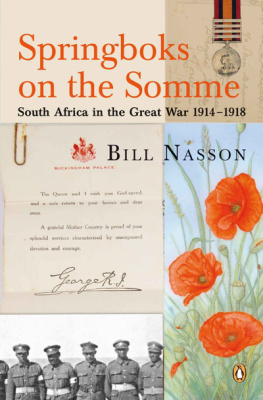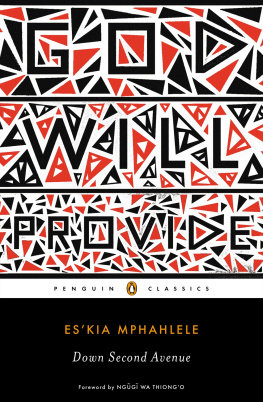University of Virginia Press
2017 by Hermann Giliomee
Published by agreement with NB Publishers, a division of Media24 Boeke (Pty) Ltd
Originally published by Tafelberg, an imprint of NB Publishers, Cape Town, South Africa, in 2016
All rights reserved
Printed in the United States of America on acid-free paper
First University of Virginia Press edition published 2017
ISBN 978-0-8139-4091-5 (paper)
1 3 5 7 9 8 6 4 2
Library of Congress Cataloging-in-Publication Data is available for this title.
Translation from the Afrikaans, published simultaneously as Historikus: Linde Dietrich
Proofreading: Russell Martin
Index: George Claassen
Book design: Nazli Jacobs
All photos: Hermann Giliomee, except where otherwise indicated
Reconsiderations in Southern African History
Richard Elphick, Editor
Foreword
Historians who focus on South African history do not normally write autobiographies. Even CW de Kiewiet, the only South African historian who to my mind has come close to the elusive category of genius, never wrote about his own life. WM Macmillan, who together with De Kiewiet carried the liberal flag in the 1930s and 1940s, did write about his South African years, but he was neither born in this country nor died here. Phyllis Lewsens autobiography, Reverberations: A Memoir, appeared in 1996. Arthur Keppel-Joness A Patriot in Search of a Country was published posthumously in 2003. The only autobiography by an Afrikaans-speaking historian is AJ van Wyks The Birth of a New Afrikaner (1991).
The two pillars of apartheid were theology and history. The theologian Jaap Durand recounts in his memoir Protesstem: Oomblikke van herinnering (2016) (Voice of protest: moments of memory) how he had made it clear in his doctoral dissertation that a racially divided church could not stand the test of the Christian gospel. This standpoint would radically influence his entire life and career.
History played an equally important role. The key myths were those of an unoccupied land in 1652 (except for small numbers of Bushmen and Hottentots), and of the Bantu aggression and rapacity which white farmers suffered from since the first contact in the 1770s, supposedly creating the need for boundary lines.
As a doctoral student I did extensive work on the frontier conflicts. I came to the conclusion that the conflict was about scarce resources, with arbitrary power rather than generally accepted rules being decisive. White farmers first priority was not partition, but black labour.
From early on the white authorities proceeded under the delusion that they could enter into a treaty with a chief or a paramount chief that bound the whole tribe. This was also the basic fallacy of the Bantustan policy of the second half of the twentieth century.
The main point on which I differed with other historians and social scientists was that of the root causes of social conflict. For me, it was not in the first place about the individual and his or her interests as the liberals believe or about class conflict as the radicals would have it but rather about the intrinsic competition between what can be called nations because they are based on different cultures.
In South Africa, up to about 1990, it was conflict between black nations that identified with Africa and a collection of ethnic minorities that had Europe rather than Africa as their reference point. In the 2016 election for the first time a strategically important segment in the electorate emerged that put a high premium on corruption-free and efficient government, not on group identity.
While I had no illusions about the fact that the NP regime would do everything in their power to retain sole control for as long as possible, I did disagree with some of my English-speaking colleagues who were of the view that the regime would also do everything possible to oppress black people. I believe, for example, that Hendrik Verwoerds policy of Bantu education was a rational attempt to provide mass education to a rapidly growing indigenous population within a political framework in which there was no enthusiasm from either Afrikaans- or English-speaking white voters for government expenditure on black education.
What has made my background somewhat different from that of most academics is that I spent the first half of my career at an Afrikaans university (Stellenbosch) and the second half on an English campus (University of Cape Town). I wrote books, academic articles and newspaper columns in both Afrikaans and English.
As a historian, I was fortunate in that I wrote about several revolutions and even experienced some at first hand. The first revolution was the first British occupation of the Cape (1795-1803), the subject of my first book. My study of this period enabled me to see how virtually the entire social order underwent a radical change, with paternalism, mercantilism and inequality supplanted by liberal principles, a market economy, and equality before the law. Not unlike today, leadership positions were occupied by the Anglo men who sought to replace Dutch-Afrikaans culture with English culture.
The second revolution I experienced as a child and a student: the rise of the Afrikaner nationalist movement. In 1938, the year of my birth, this movement reached one of its climaxes with the symbolic oxwagon trek in commemoration of the centenary of the Great Trek, which sparked mass Afrikaner enthusiasm. It was followed by a cultural blossoming over the next 20 to 25 years of Afrikaans as a literary and scientific language, and ultimately a republic outside the Commonwealth. Many Afrikaners expressed jubilation at the severing of this last link with Britain with a cry of free at last.
The third revolution was apartheid, which still enjoyed a degree of respectability in my student years. Van Zyl Slabbert, my contemporary at Stellenbosch in the 1960s, would later describe the excitement, even the thrill experienced by academics and students in discussing this ideology. He added that apartheid had a coherence and systematic quality which cannot be dismissed as racism pure and simple. It made logical sense and addressed some very prickly issues.






